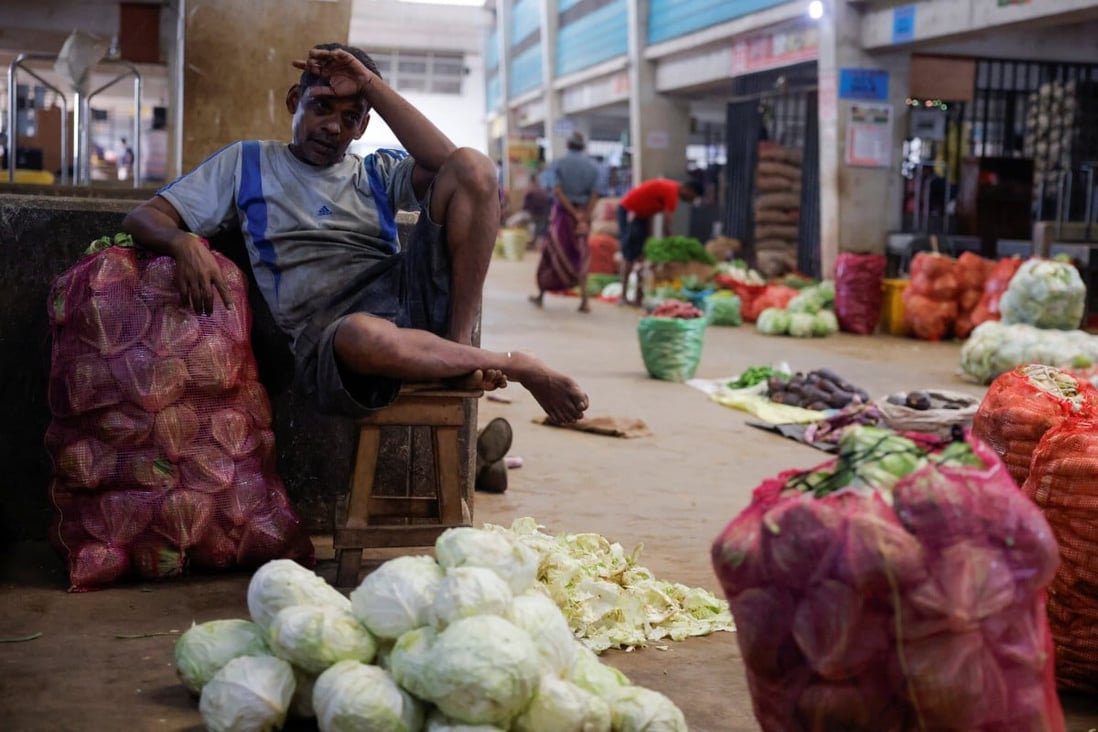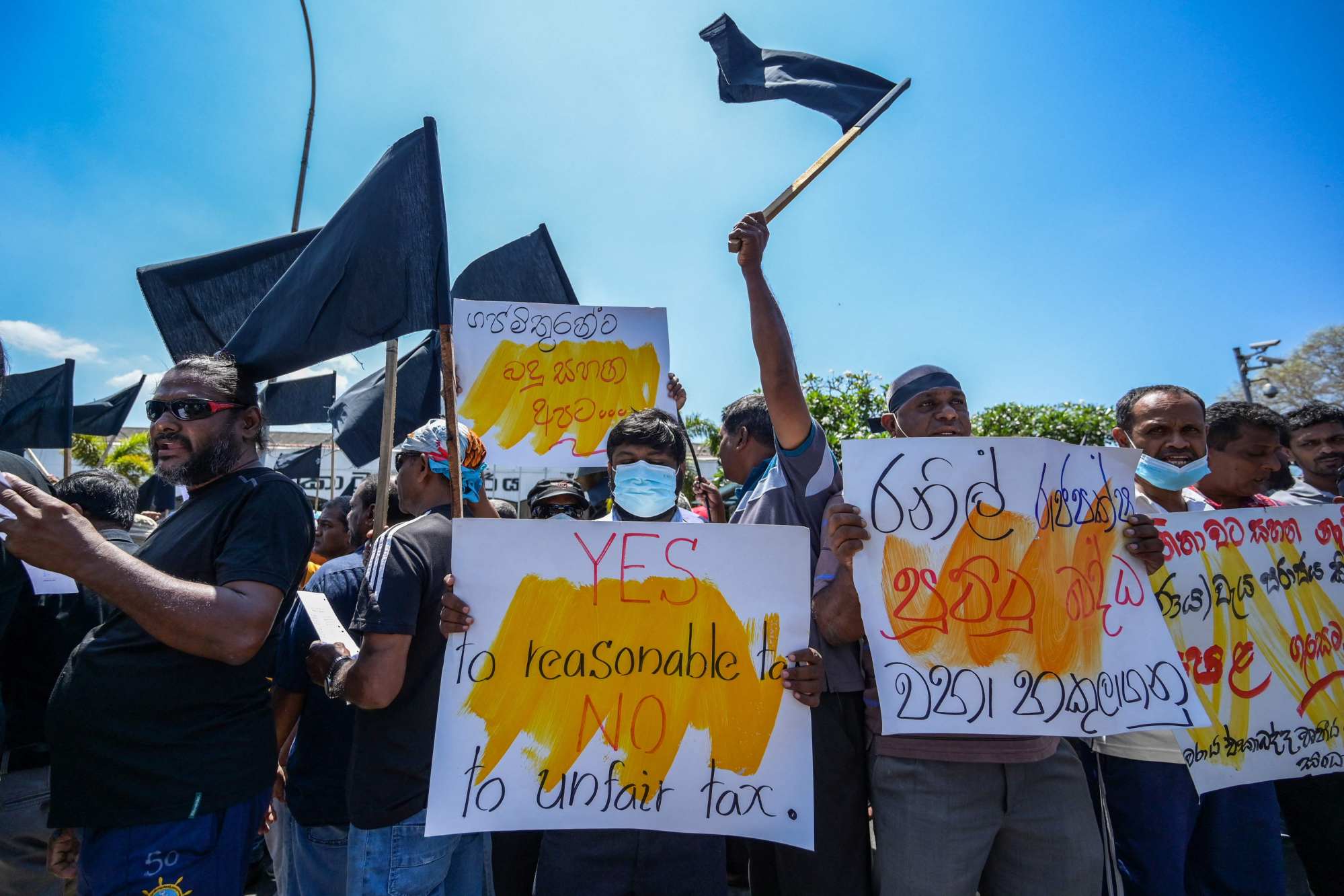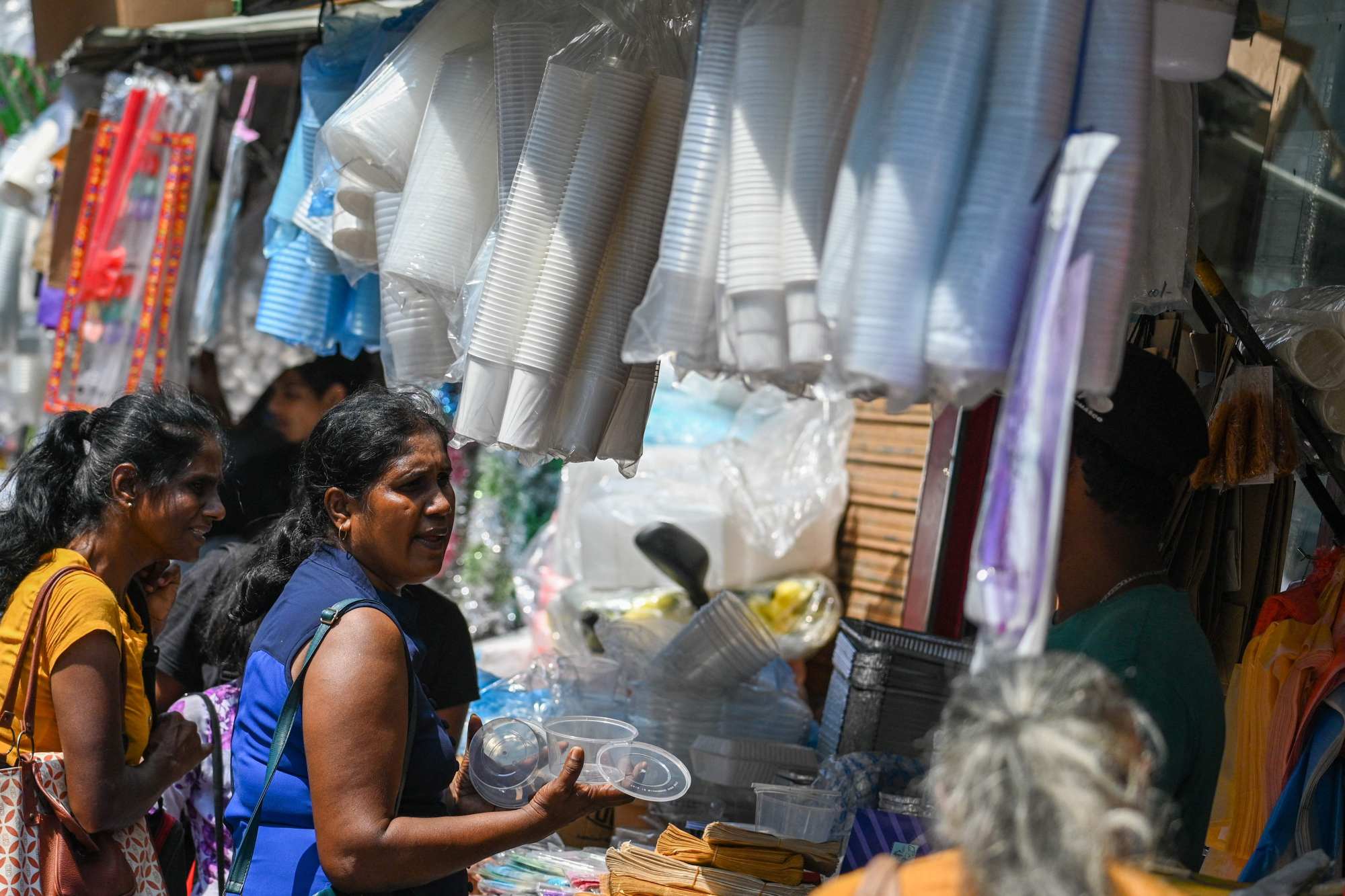IMF’s US$2.9 billion bailout an ‘endorsement’ for Sri Lanka’s economic recovery: analysts
Posted on March 9th, 2023
Courtesy The South China Morning Post
- Sri Lanka has been waiting since September for the IMF loan, as the broke country seeks a desperate path to recovery
- People have been struggling to make ends meet and afford basic supplies, with sharp increases in electricity charges and income taxes taking a toll

A vendor waits for customers at his vegetable stall at a main market in Colombo, Sri Lanka, in February 2023. Photo: Reuters
The long-awaited IMF financing will not drastically change the trajectory of things” for Sri Lankans struggling with rising costs of living, but it could provide a much-needed confidence boost that the country’s economic recovery is on the right track, experts have said.
The International Monetary Fund (IMF) is expected to give final approval later this month for its US$2.9 billion, four-year bailout package after Sri Lanka had secured financing assurances from China, India and all its major bilateral creditors.
IMF money itself will not drastically change the trajectory of things. But, what is more important is the overall improvement of the sentiment and the confidence built about the programme,” said Chayu Damsinghe, product head of macroeconomic and thematic research at Frontier Research, a Sri Lanka-based macro advisory firm.
Approval would also help release the billions of dollars in bilateral aid and loans that could trigger processes to initiate gradual recovery, even if it did not offer direct help out of the crisis, Damsinghe added.
The sentiment was echoed by government spokesman Bandula Gunawardana, who said: Our problems can’t be solved with this US$2.9 billion, but what is really important for us is the endorsement of the IMF that our economy is now on the right path.”
Sri Lanka was plunged into a debilitating economic crisis last year amid depleting foreign currency reserves, resulting in its 22 million people struggling to access fuel, food and medicine, facing extended blackouts and suffering from soaring inflation.
The island nation has been waiting since September for a US$2.9 billion loan from the International Monetary Fund (IMF) as it struggled to secure adequate debt restructuring terms from China, its largest bilateral lender holding 19.6 per cent of the total government external debt, which was US$45.5 billion as of the end of 2022.
Sri Lankan President Ranil Wickremesinghe on Tuesday said he expected final approval from the IMF in the third or fourth week of this month after he revealed he had secured new support from China for its debt restructuring plans.
When asked about Wickremesinghe’s statement that Beijing had agreed to help, foreign ministry spokesperson Mao Ning said on Wednesday: The Export-Import Bank of China, as the official bilateral creditor, issued a financial assurance letter to Sri Lanka on March 6.
China is ready to work with relevant countries and international financial institutions to play a positive role in helping Sri Lanka cope with its current difficulties, ease its debt burden and achieve sustainable development.”
Sri Lanka bakery forced to cut staff after country’s latest electricity price hike
The IMF programme would enable other important creditors, including the Asian Development and the World Bank, to restart lending, perhaps on better terms”, Damsinghe added, so that Sri Lanka could get a head start on critical reforms such as restructuring state-owned enterprises (SOEs).
According to the government’s 2023 budget speech, 52 major SOEs including Sri Lankan Airlines collectively made an annual loss of 86 billion Sri Lankan rupees (US$260 million) the previous year.
If there is funding for more welfare, then this would also help with the ground-level situation in the short term,” Damsinghe added, referring to the everyday struggles of the people amid rising costs of living.
Last year, funding from the World Bank and Asian Development bank went into buying fertiliser for farmers, and cooking gas for citizens.
Sri Lanka has been maintaining strict controls on imports to save foreign exchange. Fuel is still rationed and essential medicines are in short supply, and while inflation is down from its highs of 70 per cent in September, it is still around 50 per cent.
Professionals and workers in many other sectors have been protesting for months over sharp increases in electricity charges and income taxes to strengthen state revenue, a prerequisite for the IMF package.
Government statistics showed the Sri Lankan economy contracted by 11.8 per cent during the third quarter last year, with industries shrinking by 21.2 per cent.
A World Food Programme (WFP) report published in December 2022 said 36 per cent of Sri Lankan families were food insecure and had to reduce food intake to cope.

People protest over sharp increases in electricity charges and income taxes in Colombo in February 2023. Photo: AFP
Mala Ilukpitiya, a vendor from Hanwella about 30km from Colombo city, sells herbal porridge and other snacks to workers from a nearby garment factory. But she says her daily income of 1,500 rupees (US$4.30) is now under threat.
Now the factory is closed on some days, and also the workers have less money to spend on food, so fewer people buy from me,” Ilukpitiya, 61, said.
Others like Sudarshan Selvarathnam are struggling to cover medical expenses. The 44-year-old from Passara in Sri Lanka’s central hill country lost his job after suffering severe spinal injury that has left him confined to a wheelchair.
The family is now dependent on his wife’s salary of 25,000 rupees. But the increasing living costs mean the family has already exhausted its savings and can barely make ends meet. Selvarathnam is now unable to afford daily medical necessities, or the recommended treatments.

Customers buy plastic cutlery at a market in Colombo. Government statistics showed the Sri Lankan economy contracted by 11.8 per cent during the third quarter last year. Photo: AFP
I need about 60 diapers per month, [but] they are getting more and more expensive, and I cannot afford them,” he said, adding that he was looking for jobs that would allow him to work from home to ease the financial strain.
Ilukpitiya, the food vendor, said the increases in electricity bills would burden her even more, as her meagre earnings could barely cover essential expenses.
Things come one after another, it is hard to survive,” she said.